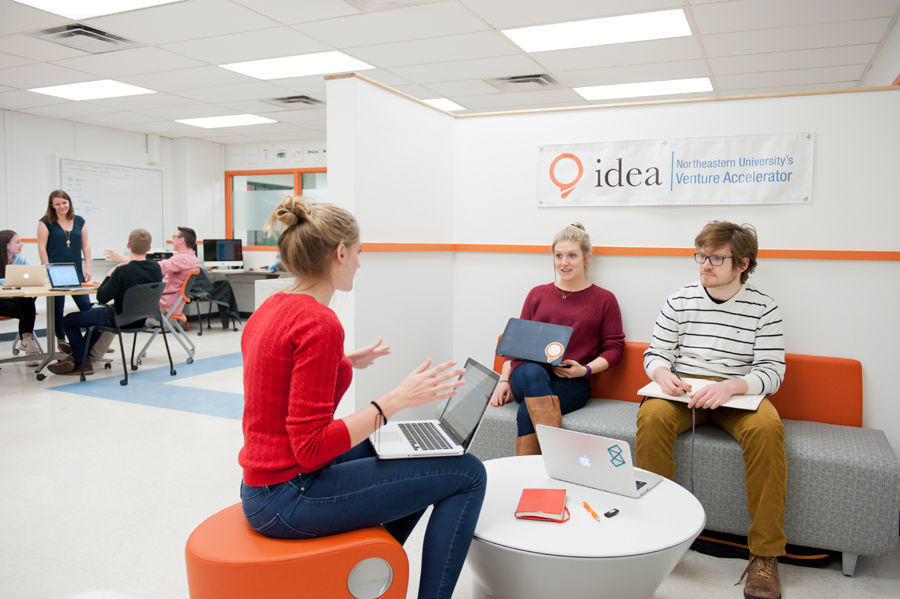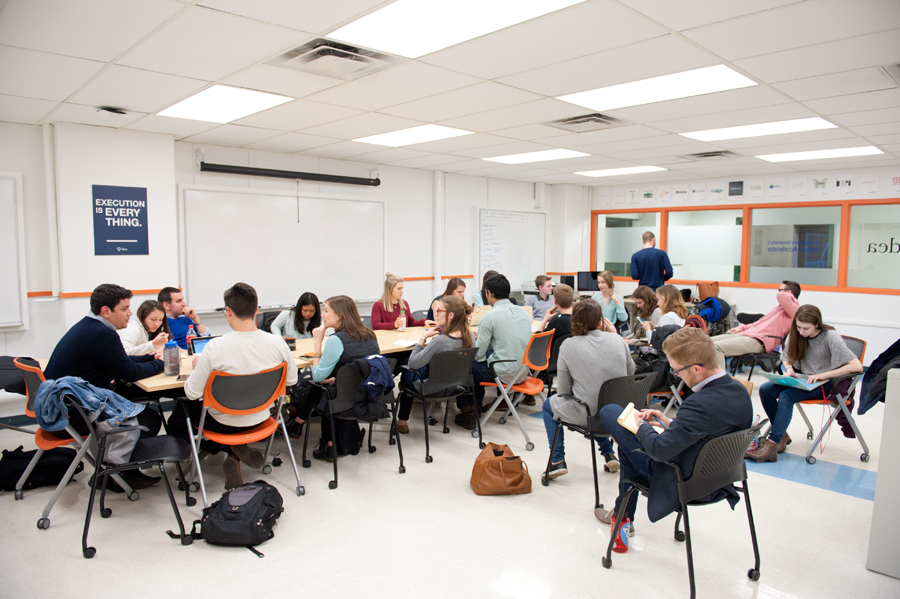
IDEA is entirely student-run! We have about 384 ventures going through the program and about 35 coaches advising these ventures through the process. Their experience is entirely managed by our team of 28 undergraduate students.

CEO, Kate Murdock
Name of Accelerator: IDEA: Northeastern University’s Student-Led Venture Accelerator Program
Location: Boston, MA
Website: www.northeastern.edu/idea
CEO: Kate Murdock
This article is part of our Startup Accelerator Spotlight featuring accelerators from around the world. We hope these spotlights will assist the entrepreneur should they consider attending an accelerator.
In two sentences or less, tell us about your accelerator and its objectives.
We provide entrepreneurs in the Northeastern community the support, in-kind resources and educational experiences needed to develop a business from concept to launch. To this day, IDEA has worked with over 900 concepts and helped hundreds of Northeastern affiliated founders grow and shape their business.
5 Steps from Concept to Startup
Why is your accelerator program unique? Please describe the benefits of participation in your program.
Two major aspects of the IDEA program makes it unique. First, it is entirely student-led. Our management team, comprised entirely of undergraduate students, organizes and operates the program. Secondly, because IDEA is tied to a greater entrepreneurial eco-system within Northeastern, our ventures access resources from various student-led groups on campus from design services to Intellectual Property support from the NU Law School.
What is the most difficult part of working with startups?
 Most entrepreneurs treat their venture ideas as their babies. One of the most challenging components of running an accelerator is giving ventures critical feedback. Entrepreneurs are incredibly passionate about their ideas, which is one of the best parts about running an accelerator, but it also leads to some of the most difficult interactions. When you love an idea, it can be challenging to take critical feedback. Our goal as an organization is to help entrepreneurs take their ideas from concept to launch by giving them the necessary tools and education to run a successful business. It can be tough for an entrepreneur to hear criticism in that process, particularly when it comes to funding.
Most entrepreneurs treat their venture ideas as their babies. One of the most challenging components of running an accelerator is giving ventures critical feedback. Entrepreneurs are incredibly passionate about their ideas, which is one of the best parts about running an accelerator, but it also leads to some of the most difficult interactions. When you love an idea, it can be challenging to take critical feedback. Our goal as an organization is to help entrepreneurs take their ideas from concept to launch by giving them the necessary tools and education to run a successful business. It can be tough for an entrepreneur to hear criticism in that process, particularly when it comes to funding.
Clarify the Vision – 10 questions to create an effective vision statement
What do you enjoy the most/what do you find most appealing about working with entrepreneurial startups?
Working with startups is always an exciting process, because we get to watch these ventures go all the way from their initial idea to a functioning business. We get to experience the founders’ passion and drive. Working in an environment where everyone truly loves what they are doing and wants to succeed is invigorating. We also get to see a plethora of ideas across all industries, which is fascinating for us as managers of the accelerator.
Tell us about your success stories; which are the most interesting companies to have participated in your program?
 This depends on how you define success. We have had some really interesting companies come through the accelerator across a variety of industries. We have some who have gone on to raise 19M+ in follow on funding and others who never raised external funding and are fully operational on their own revenue. Bureo is one that comes to mind because of their social impact focus. They turn recycled fishing nets into consumer products like skateboards, sunglasses and games. Recently, they have partnered with Patagonia.
This depends on how you define success. We have had some really interesting companies come through the accelerator across a variety of industries. We have some who have gone on to raise 19M+ in follow on funding and others who never raised external funding and are fully operational on their own revenue. Bureo is one that comes to mind because of their social impact focus. They turn recycled fishing nets into consumer products like skateboards, sunglasses and games. Recently, they have partnered with Patagonia.
6 Items to Prepare for a Pitch to Concept Stage Investors
On the complete opposite end of the spectrum, Holobiome is developing a platform of microbiome-based therapeutics to treat diseases of the central nervous system.
We have food products nation-wide, custom guitars and audio equipment, spin studios, software, hardware and more.
What are the 3 most important factors startup entrepreneurs should consider when contemplating attending an accelerator?
- Passion for their project or idea.
- Willing and open to criticism and feedback.
- Ability to dedicate the needed time to their venture idea to be successful in an accelerator program.
What else would you like to share?
We are entirely student-run! We have about 384 ventures going through the program and about 35 coaches who advise these ventures through the process. Their experience is entirely managed by our team of 28 undergraduate students.
Are you familiar with accelerators you believe should be spotlighted? If so, we would like to hear from you. Tell us about them in the comments below.









